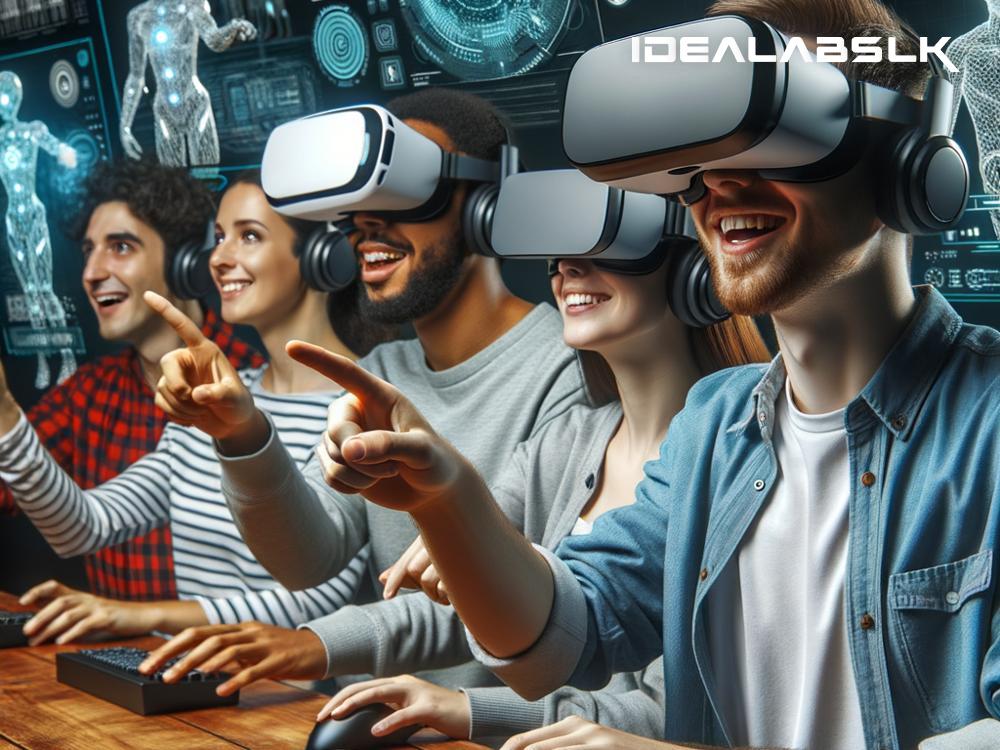Title: How AI Will Transform Virtual Reality Games by 2025 for Unmatched Immersion
Have you ever dreamt of stepping into a game and living out the adventures firsthand? This dream is fast becoming a reality, thanks to the fusion of Artificial Intelligence (AI) and Virtual Reality (VR) gaming. By 2025, we're likely to witness a profound transformation in VR gaming, where the boundaries between the virtual and real worlds blur. Let's dive into how AI is set to redefine VR gaming, making it more immersive than ever.
Personalized Game Adventures
Imagine playing a game that adapts to your playing style, offering a truly personalized adventure. AI, with its learning capabilities, promises just that. By analyzing your previous decisions, successes, and failures, AI can modify game scenarios in real-time. This means no two gameplays would be identical, offering a tailored experience that feels more engaging and real.
Smarter, More Realistic NPCs
Non-Player Characters (NPCs) often feel robotic and predictable, but AI is about to change that. By integrating advanced AI, NPCs can exhibit behaviors that mimic human-like intelligence. They'll respond to your actions dynamically, leading to more complex and unpredictable interactions. These smarter NPCs make the game world feel alive, enhancing the overall immersion of VR gaming.
Enhanced Speech Interaction
Conversing with characters in VR games is often limited to selecting pre-defined responses. However, AI-driven natural language processing is set to revolutionize this aspect. You'll be able to speak to NPCs as you would with a real person, and they'll understand and respond appropriately. This leap in technology will make dialogues and interactions in games feel more natural and engaging.
More Responsive and Adaptive Environments
The game environment plays a crucial role in immersion. AI can make these virtual worlds react to your actions. For instance, if you're known to take stealth approaches in games, the AI might alter the environment to provide more hiding spots or challenges that cater to stealth gameplay. This dynamic adjustment of the game environment will make VR experiences more responsive and exciting.
Learning and Evolving Gameplays
AI's learning capabilities don't just stop with adapting to your gameplay; they can also evolve the game itself. Games can introduce new challenges and scenarios based on collective player data, keeping the gameplay fresh and intriguing. This ensures that the VR game you love continues to surprise and engage you, even after multiple playthroughs.
Bridging the Gap with Realism
The ultimate goal of VR gaming is to create an experience that's indistinguishable from reality. AI is key to achieving this by improving graphics rendering, motion capture, and physics simulations. By 2025, expect VR games to feature lifelike visuals and movements, thanks to AI's ability to render complex graphics in real-time and simulate realistic physics. This leap in technology will make virtual worlds feel as tangible as the real one.
Emotional and Psychological Immersion
AI can also understand and adapt to the player's emotional state. By analyzing voice tones, facial expressions, and body language through VR peripherals, AI can adjust the game's difficulty, story, and atmosphere accordingly. This emotional synchronization can make game experiences more profound and personally impactful.
Conclusion
As we journey towards 2025, the fusion of AI and VR gaming is set to create unparalleled levels of immersion. From personalized game adventures and smarter NPCs to emotionally responsive game environments, the future of VR gaming promises a tailor-made, lifelike experience that was once the realm of science fiction. While challenges remain in fully realizing this vision, the progress in AI and VR technologies gives us a glimpse of the exciting potential. Get ready to step into virtual worlds where your actions have real weight, and the adventure is uniquely yours. The future of gaming is not just about playing a game; it's about living it.

